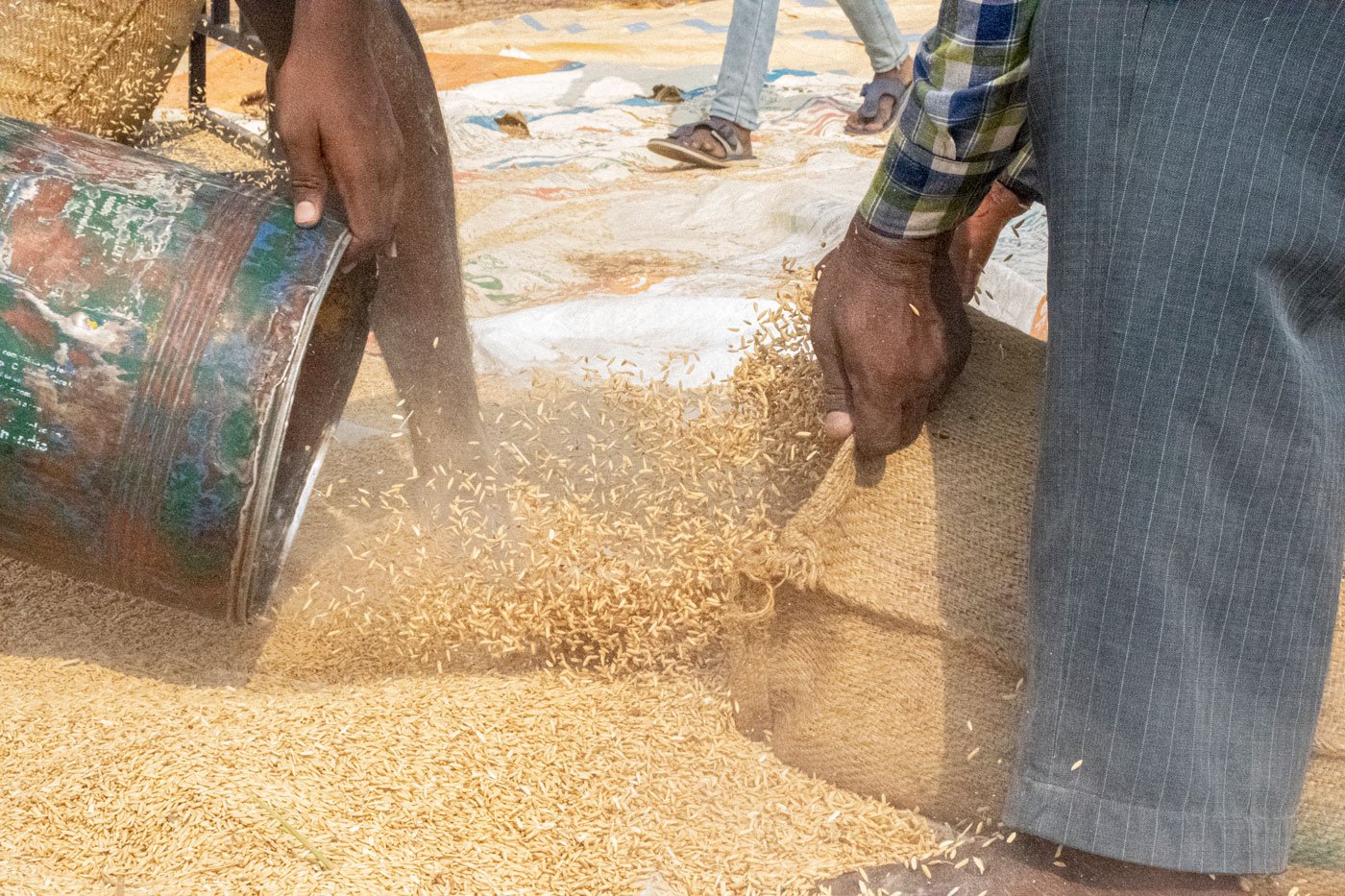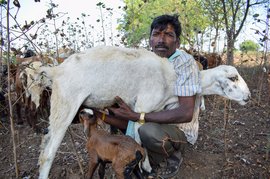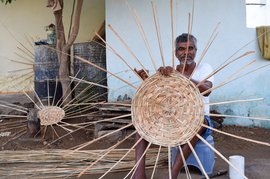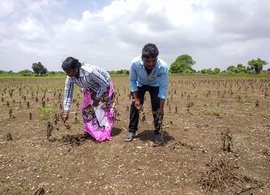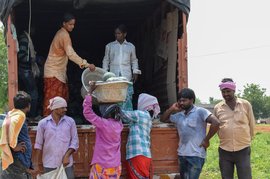“We cannot breathe,” say the workers.
The masks they wear at this procurement centre in Telangana’s Nalgonda district, soak in sweat. Rising dust from the paddy heaps causes their skin to itch and makes them sneeze and cough. How many masks can they change? How many times can they wash and wipe their hands and faces? How many times can they cover their mouths – when they must fill, drag, weigh, stich, carry and load into trucks 3,200 gunny bags – each weighing 40 kilograms – in 10 hours?
That’s 48 workers handling 128 tons of paddy – or 213 kilograms a minute – in temperatures hovering around 43-44 degrees Celsius. Their work starts at 3 a.m. and stops by 1 p.m. – that’s at least four hours, from 9 a.m., in very hot and dry weather.
However sensible it is to practice wearing masks and physical distancing, it’s next to impossible to do that when you’re working at a paddy procurement centre like the one in these photographs from Kangal village in Kangal mandal . And state agriculture minister Niranjan Reddy told the local media in April that there are 7,000 such centres across Telangana.
And what do they earn for this? There were four groups of 12 workers each and every worker made around Rs. 900 for the day. The catch: you get this work only every alternate day. Each worker here will get 23 days – or Rs. 20,750 across the 45 day-procurement period.
This year, paddy procurement in the rabi season started in the first week of April, fully overlapping with the Covid-19 lockdown period, from March 23 to May 31.
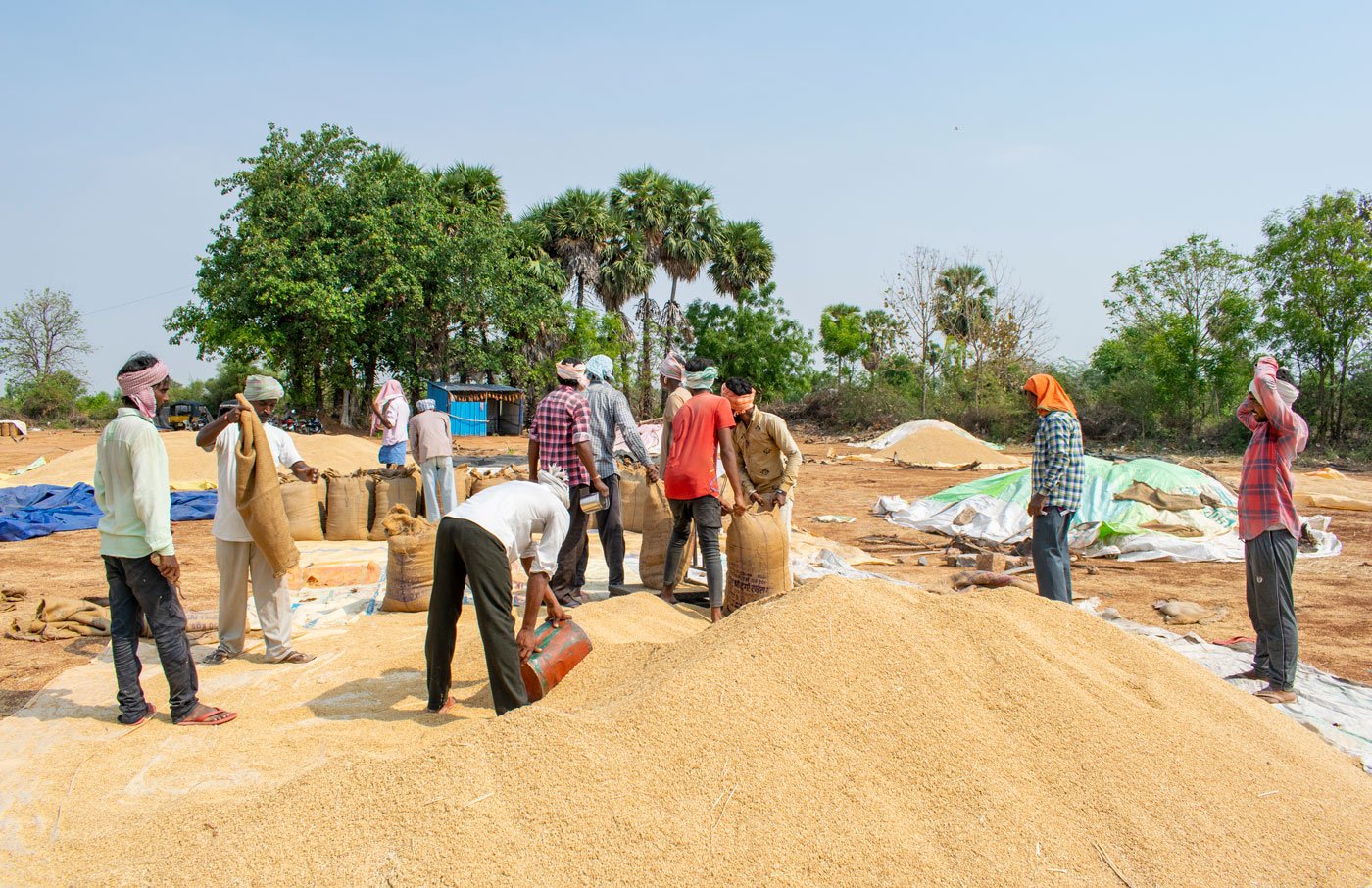
This kind of labour requires teamwork with a group of 10-12 workers attending to one heap at a time. At the Kangal procurement centre, there are four such groups, handling 128 tons of paddy in 10 hours.
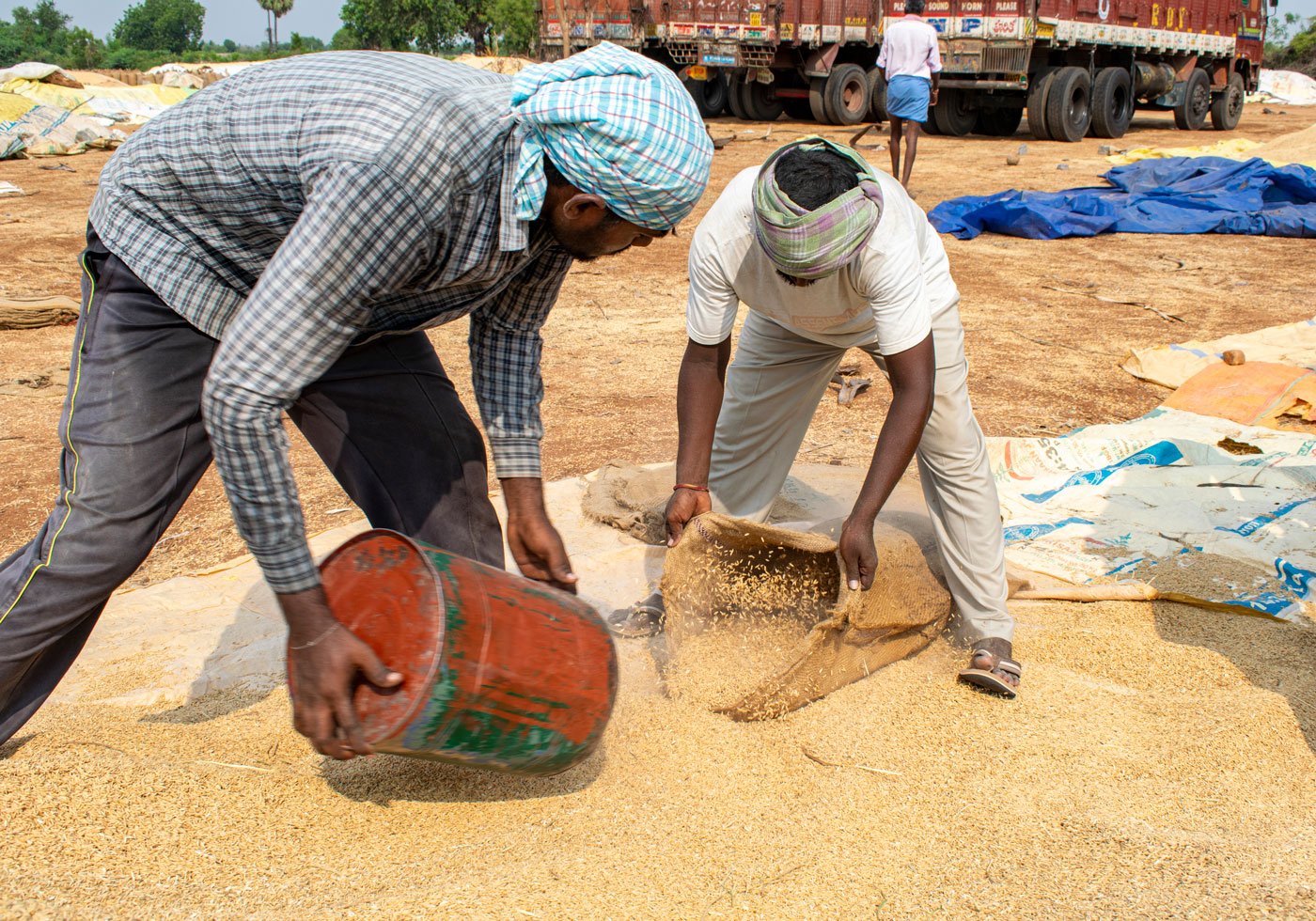
Two people swiftly fill a bag of 40 kilograms. This generates a white-coloured dust from the rice heap. That dust causes intense itchiness, which dissipates only with a bath.
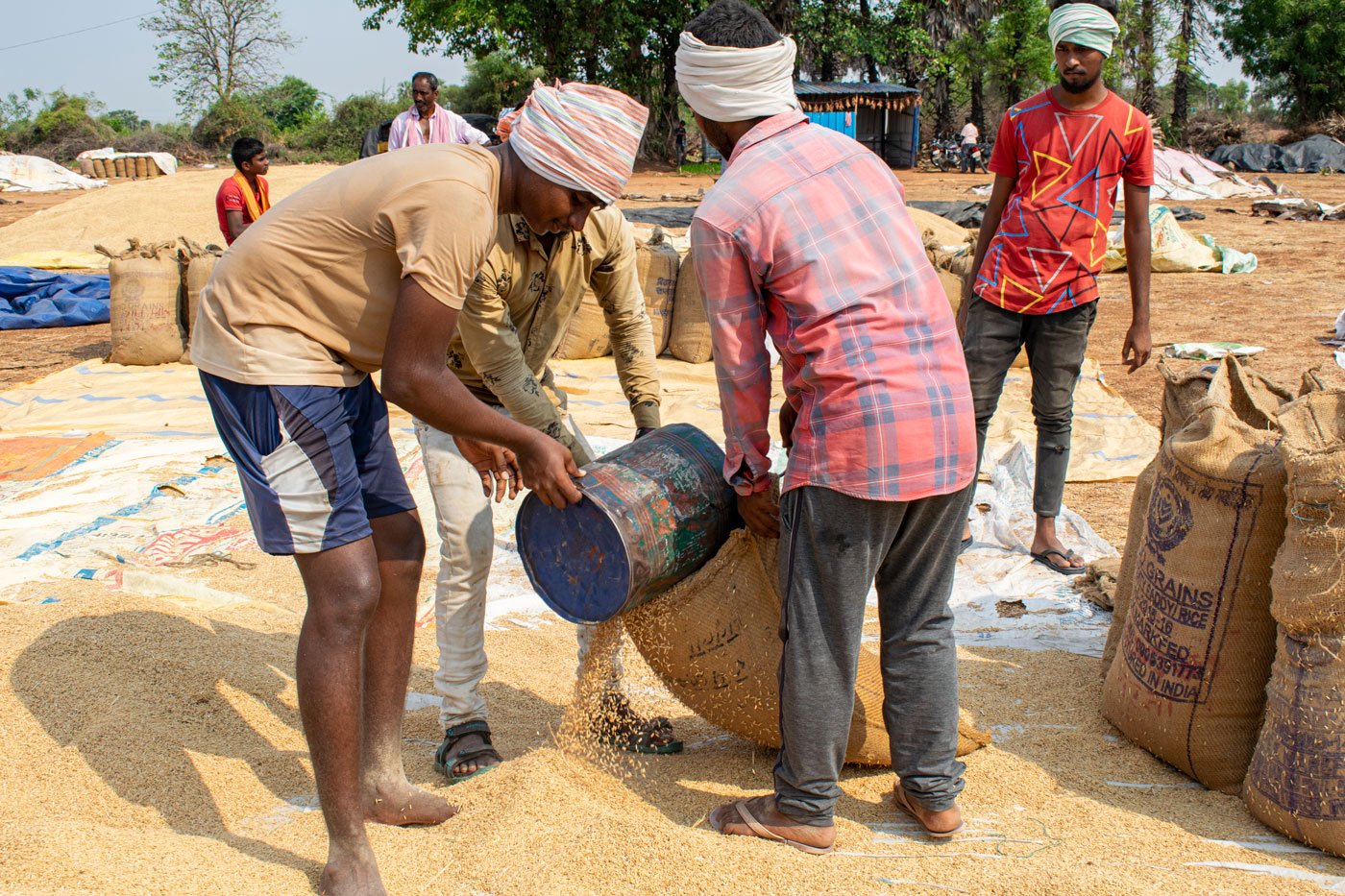
They must fill close to 40 kilos in a bag on the first attempt. Repeatedly removing excess grain, or adding to the deficit, means delays that will stretch their work beyond 1 p.m.
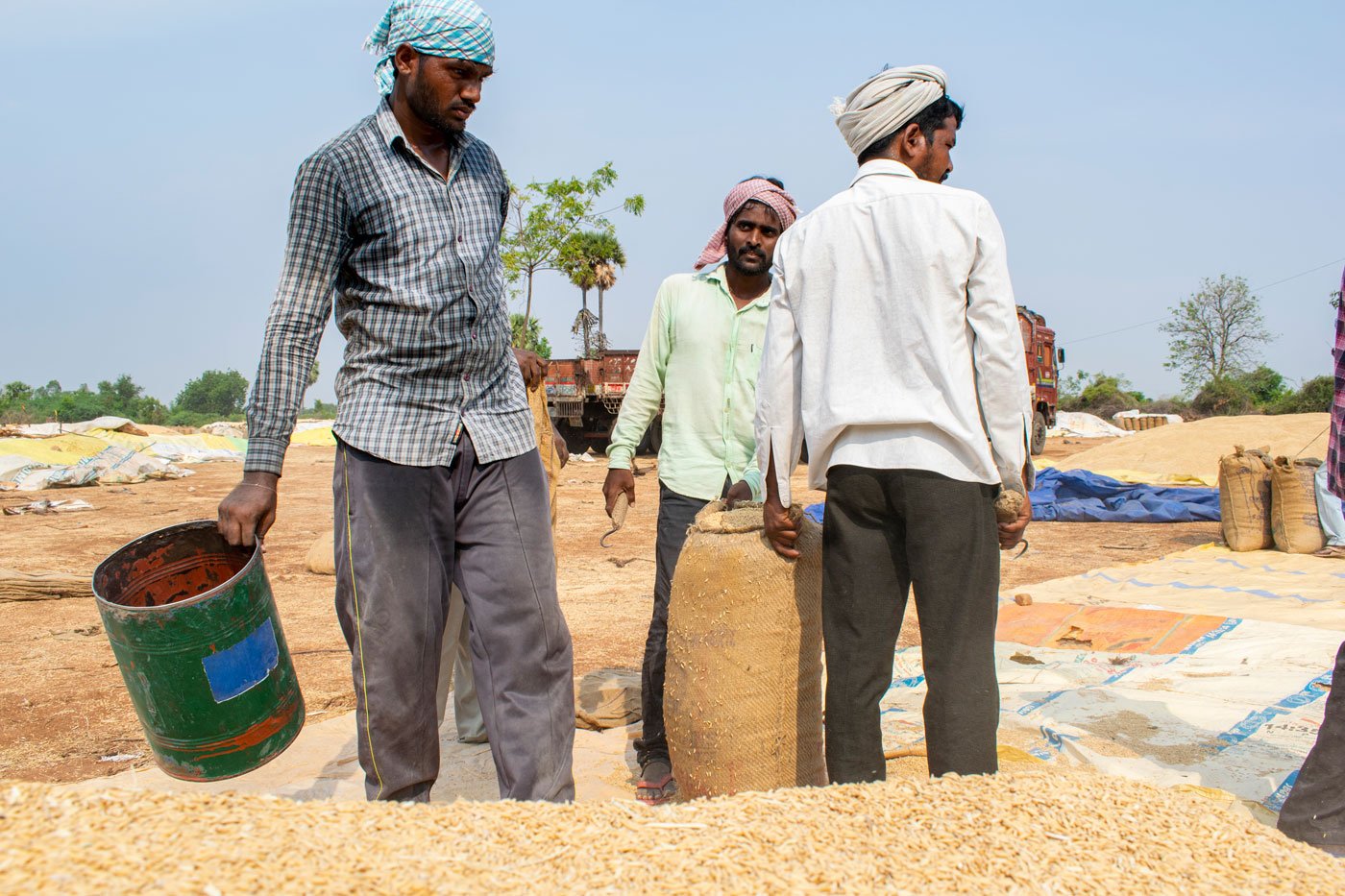
Workers use metal hooks to drag the bags and often exchange tools among them. You cannot sanitise each object every time.
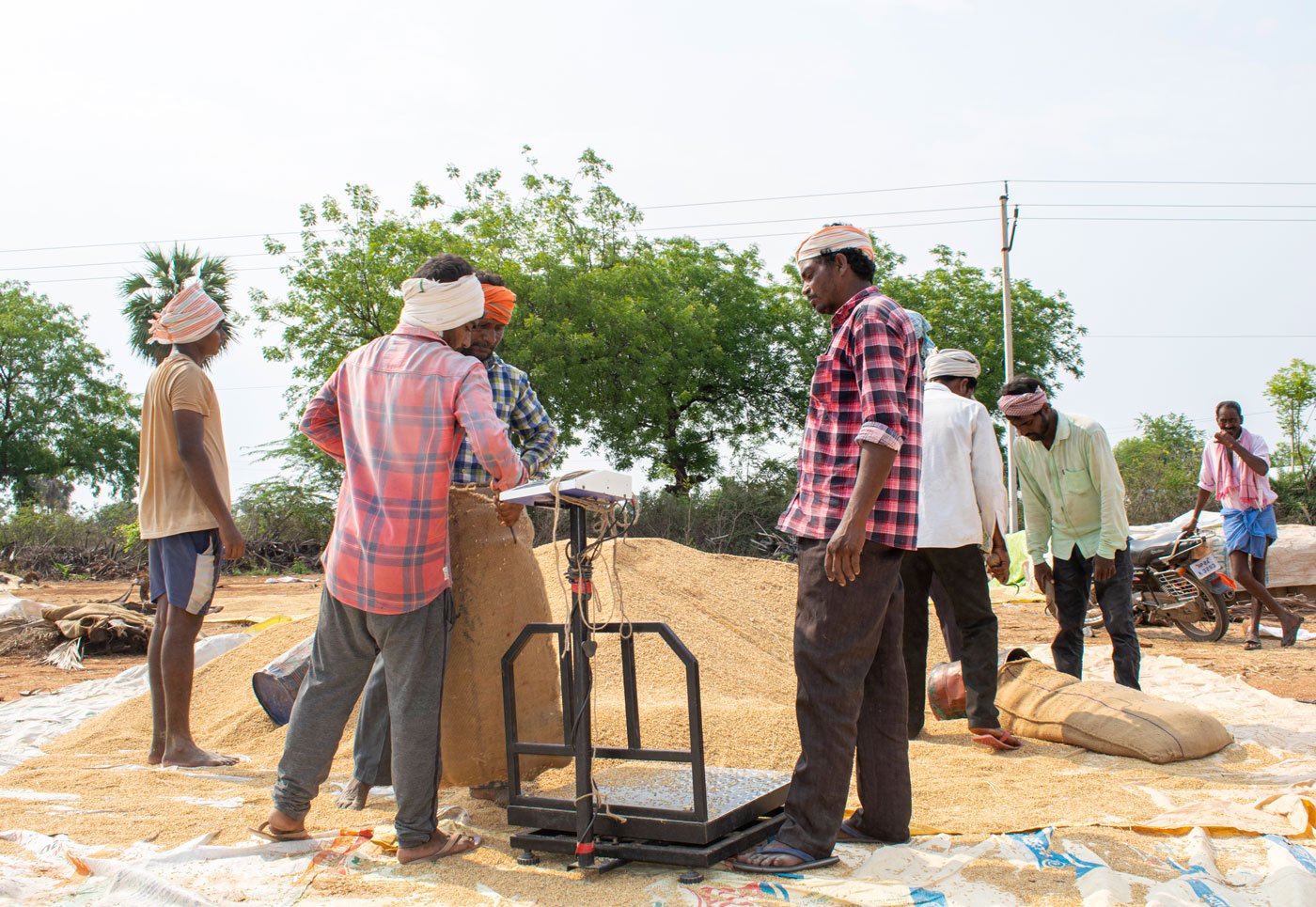
Talari Ravi (on the right) leads this group. He is responsible for accurately filling the bags and making sure they finish the work before 1 p.m.
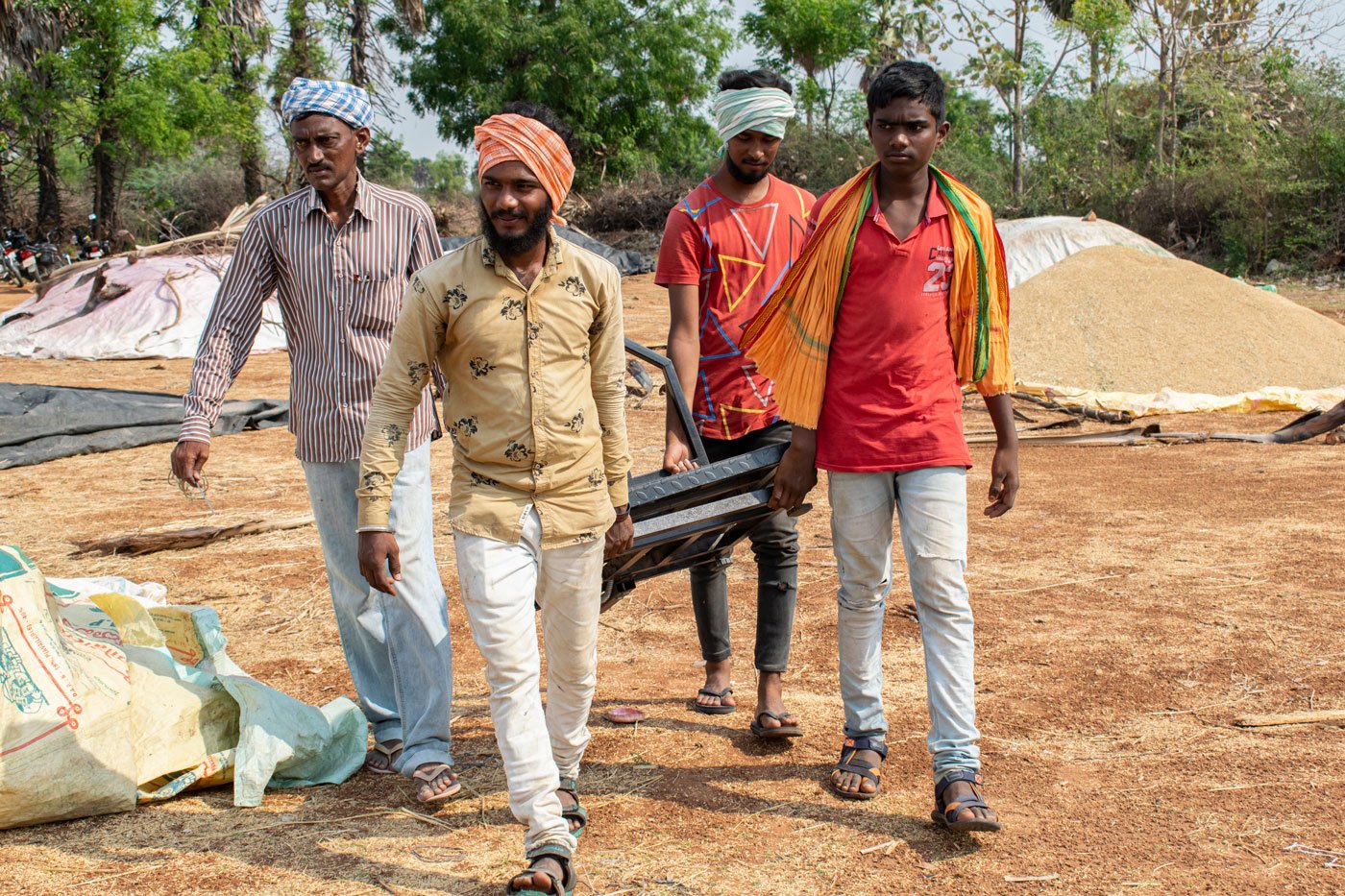
Workers – each time a different group – carry the weighing machine from one heap to another. Even if any kind of sanitiser or cleaning product was available (and it’s not at these centres), it is not possible to sanitise the instrument each time because it delays work.
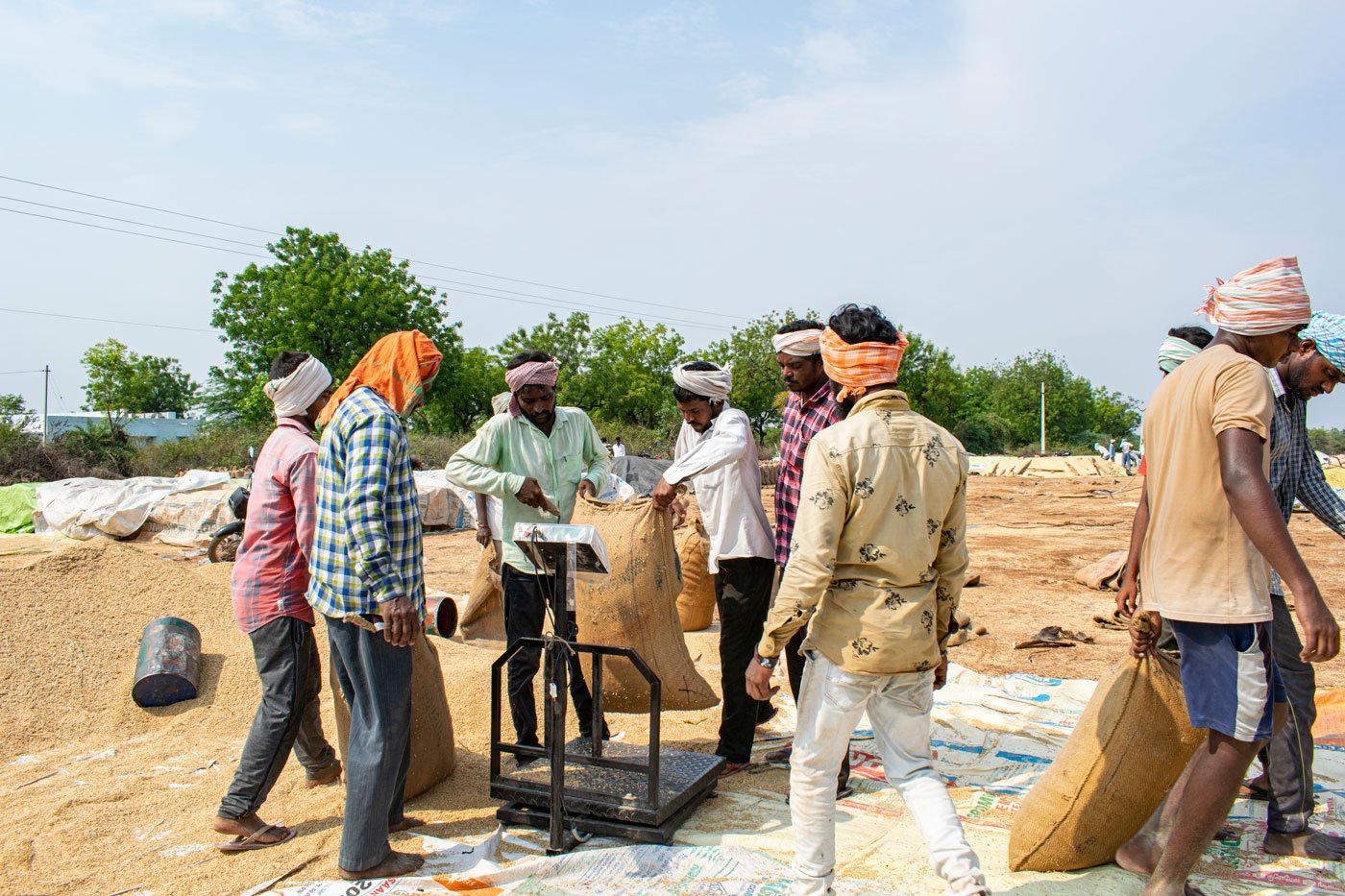
Swiftness is of utmost importance to the workers. In less than a minute, they weigh 4-5 bags.
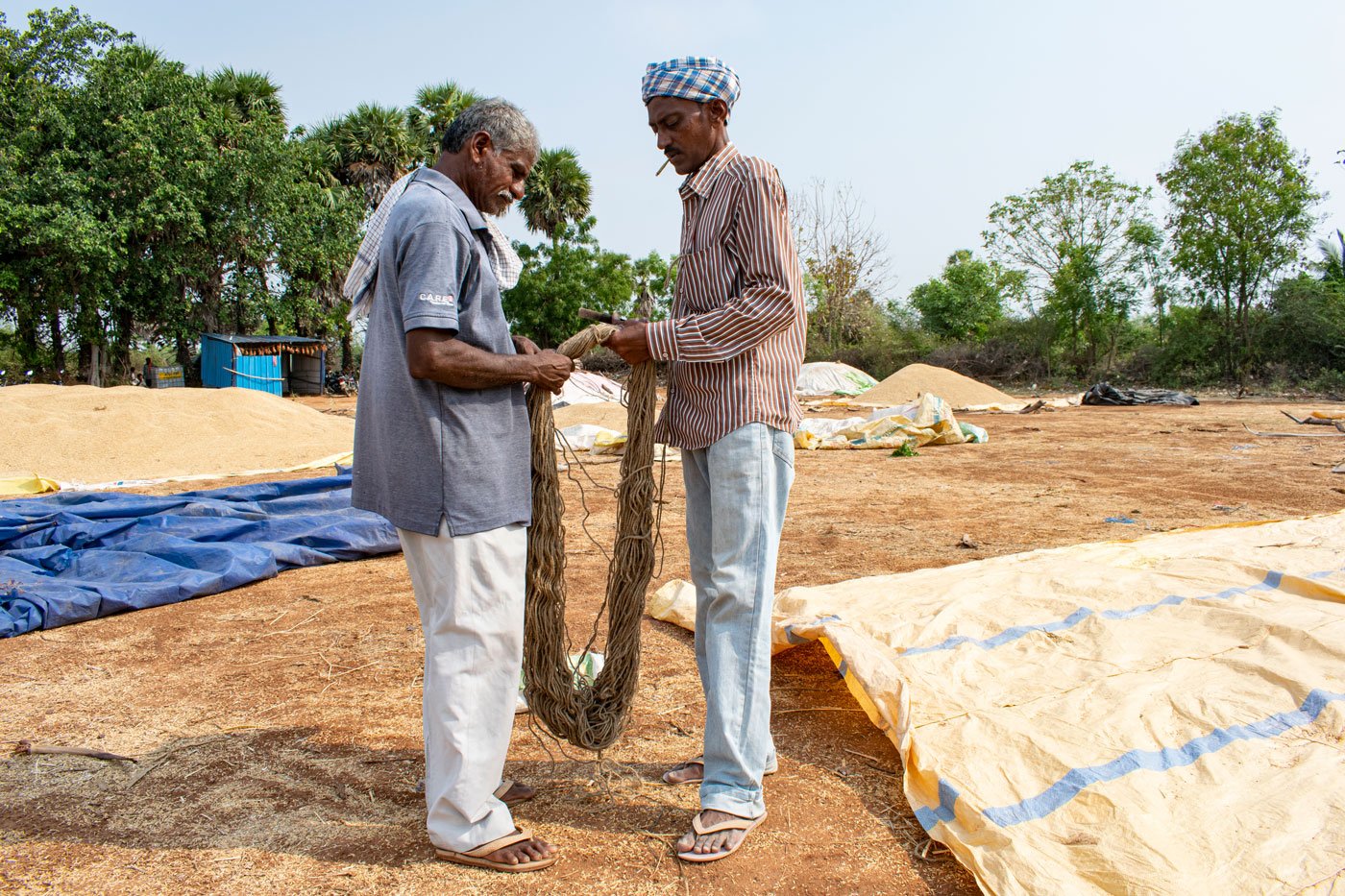
Preparing to stitch the bags. This can’t be done alone – one holds the bundle and the other cuts it in the right proportion.
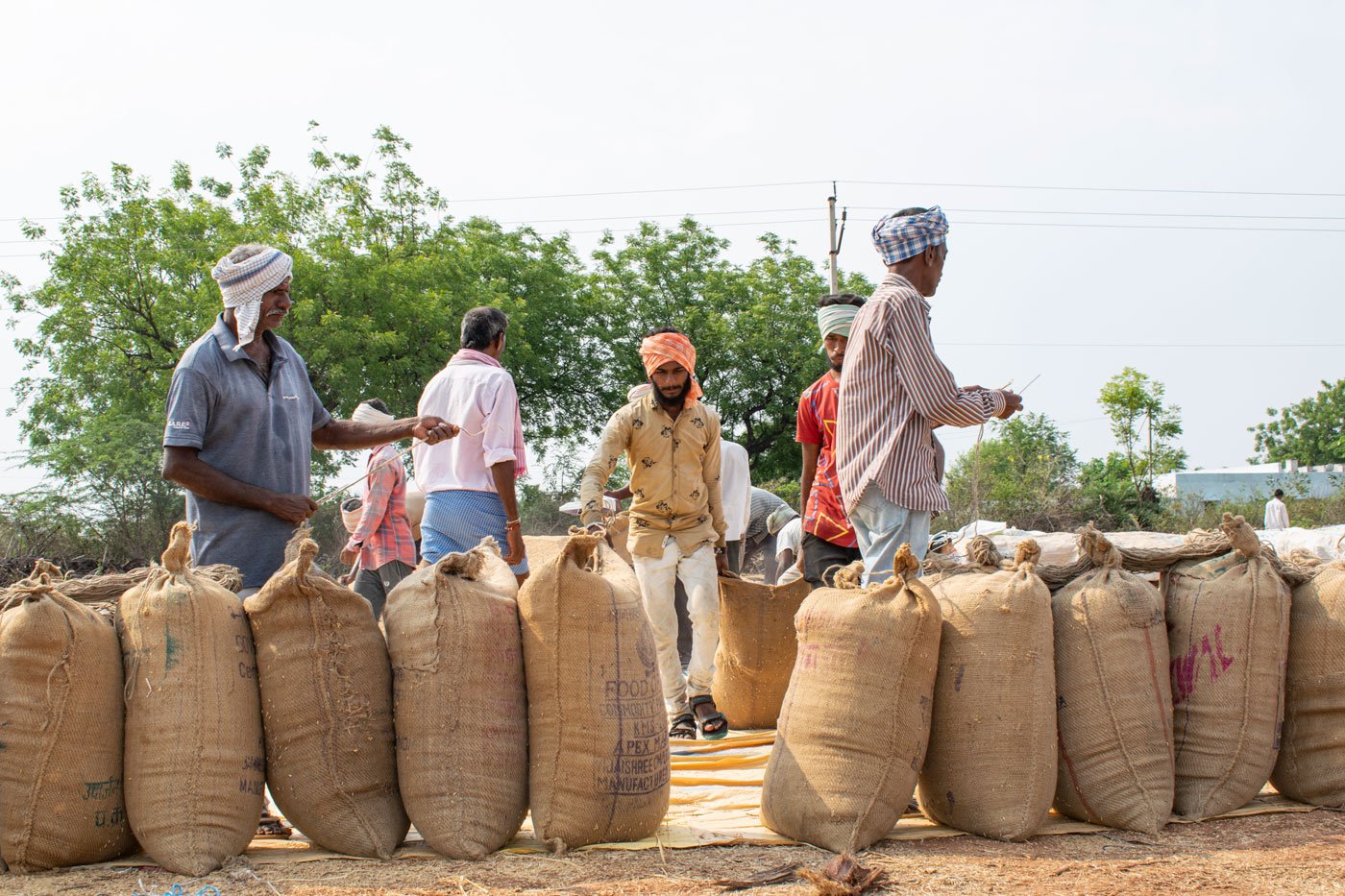
They drag the bags, weigh them and then place them in rows. This makes it easier to count the bags.
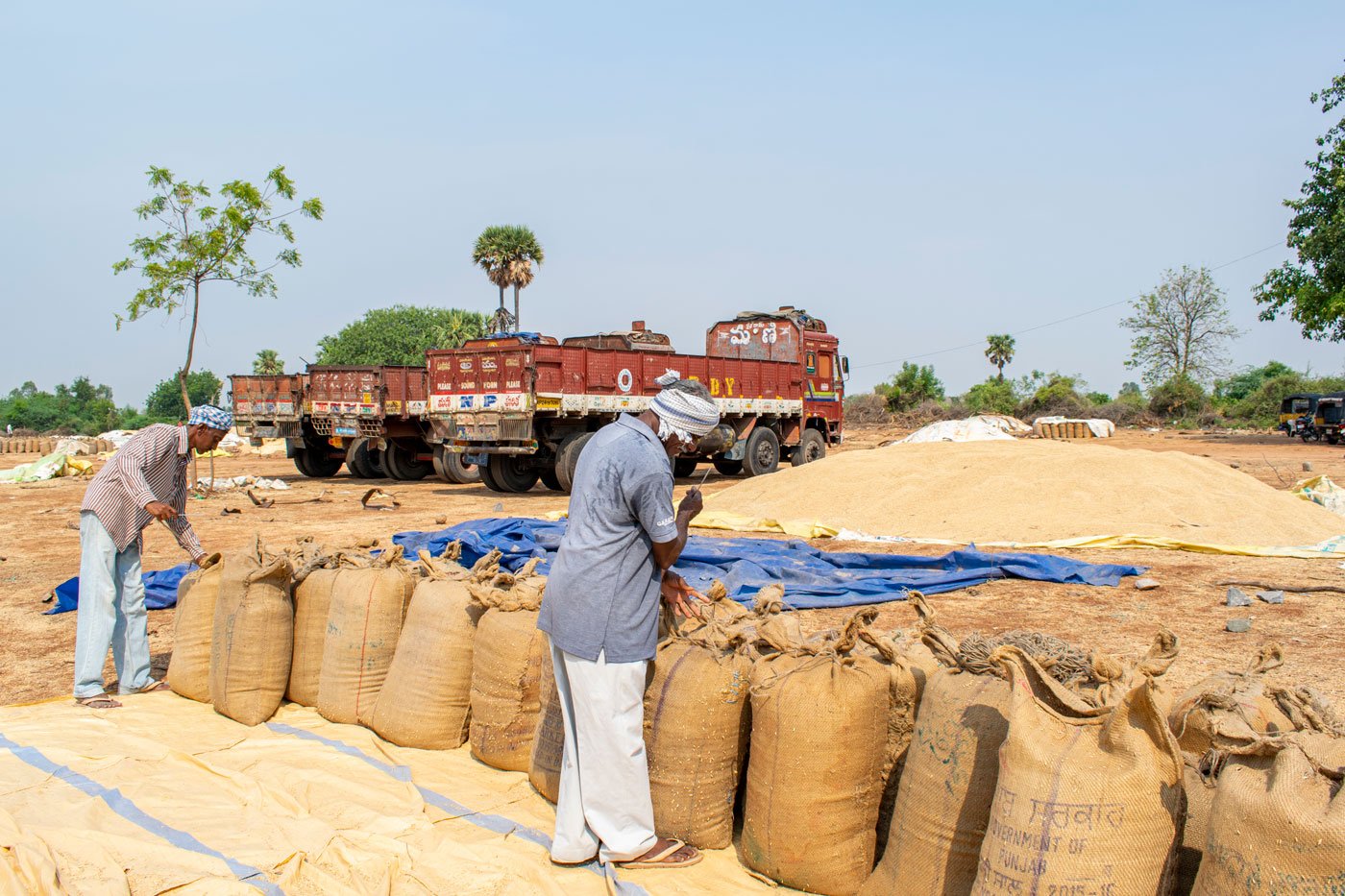
All the groups – around 40-50 people – load the 3,200 bags into five trucks by noon.
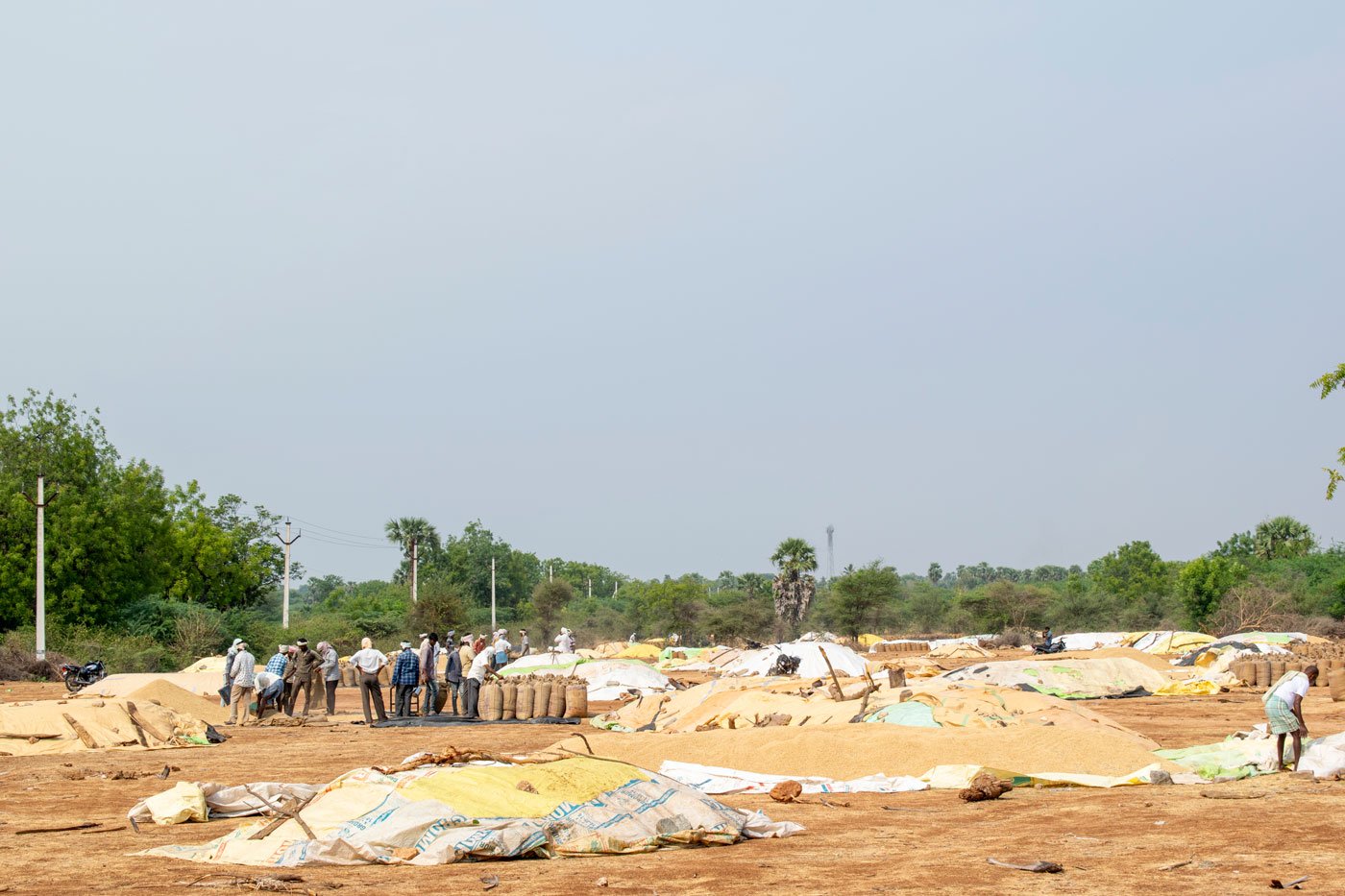
A farmer pays Rs. 35 per quintal as the handling charges. Overall, for 3,200 bags, they get Rs. 44,800 – equally distributed among all those worked that day. A person who worked today gets his next chance only after a day’s gap.
